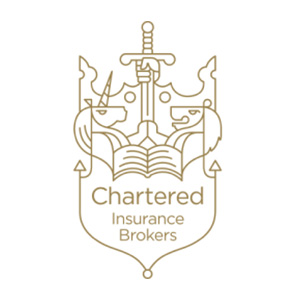In a press release dated 9th February 2022, the Minister for Public Expenditure and Reform, Michael McGrath TD, announced details of revised procurement and PI insurance guidelines for public works projects.
Outlining details of the changes, Minister McGrath said:
“I recognise the problems that a tightened insurance market for PII is having on public works projects at present. I have been working with my officials considering how best to balance the requirement for adequate risk provision and the availability of appropriate PII in a challenging market.
I am conscious that the increased premiums for PII which, in many cases, are multiples of that paid just 2 years ago represent additional overhead costs that businesses must carry. At the same time, I must consider the taxpayers’ interests in the event that insurance is called upon should a defect arise.
In response to these challenges and to mitigate potential impacts upon the National Development Plan, I am announcing details of revised guidelines for PII in Public Works Projects, which are being introduced in recognition of the significant changes in the cost and availability of PII over the last 18 months.
The revised requirements reflect the current level of PII that is available and will ensure that otherwise capable and competent consultants and contractors are not excluded from public tenders because levels of PII are being set that are not generally available in the market.”
Key points in the revised guidance issued by the Office of Government Procurement include:
- Limits on liability to be introduced in Q3 of 2022
- A reduction in the levels of PI insurance required and an acceptance of Aggregate cover where an Each & Every claim basis is not available (subject to certain caveats)
- The default liability period of 6 years is to remain
- A move away from procurement through Single Point Design Teams
- A move towards procurement of fire safety advice as a specialist service
- An acknowledgement that cover for fire safety risks may not be available in certain instances
- A commitment to explore alternative insurance solutions where appropriate
Whilst the changes follow extensive consultation by the Office of Government Procurement (OGP), there has been continuous engagement on some of these issues since the launch of the Government’s standard Conditions of Engagement in 2007. In that sense they are the product of work undertaken by several bodies over many years, and they send a necessary and strong signal to the insurance market as they evidence a renewed willingness by Government to listen and respond to the challenges we are all facing.
In commenting upon the revised guidance, Griffiths & Armour Partner, Graeme Tinney, said:
“We need to acknowledge the collaborative approach adopted by Government. When invited to provide the opening insurance market statement to the stakeholder discussions in November 2020, Griffiths & Armour felt a responsibility to provide a fair and accurate assessment of what was happening in the PI insurance market, what that meant for consultants, the broader impact for society and what measures might be considered. Whilst the guidance will not, and could not be expected to, resolve all the problems in the insurance market, it does begin to address many of the issues raised by us and other stakeholders. It will come as welcome relief to many and particularly those who have struggled to access a basic level of insurance protection.”
Whilst this is a welcome step in the right direction, there is a need to continue to consider the underlying position on liability and the potential for unintended consequences. With greater flexibility on PI requirements and an acceptance that certain firms may only be able to source aggregate cover, there will be a question as to whether this creates additional exposure for those who continue to hold cover on an ‘Each & Every claim’ basis. In seeking to mitigate that potential exposure, and to achieve a fair balance of risk across the parties, it seemed appropriate to us that consideration should also be given to the introduction of a net contribution clause within Government’s Conditions of Engagement.
Whilst the OGP indicated that this was not within the scope of their review, we understand that the Association of Consulting Engineers of Ireland (ACEI) and other industry bodies are engaged with Government on the impact of the Civil Liability Act and a suggested move towards proportionate liability. In our view, this would complement the progressive measures announced by Government by delivering a fairer balance of ‘risk and reward’ and would have a fundamental impact on insurers’ perception of the local market.
Whilst we await the outcome of those discussions, it is important to acknowledge the very positive way in which all parties have engaged on these issues. As we said in our November 2020 statement, responsibility for the challenges does not rest with any individual party and it is not a question of apportioning blame – it is about recognising a shared responsibility to work through the challenges and establish a framework that can work into the future to provide a more resilient model. In that sense, the revised guidelines should be seen as a very important first step.
For further information about how Griffiths & Armour can help support your organisation, please get in touch.










